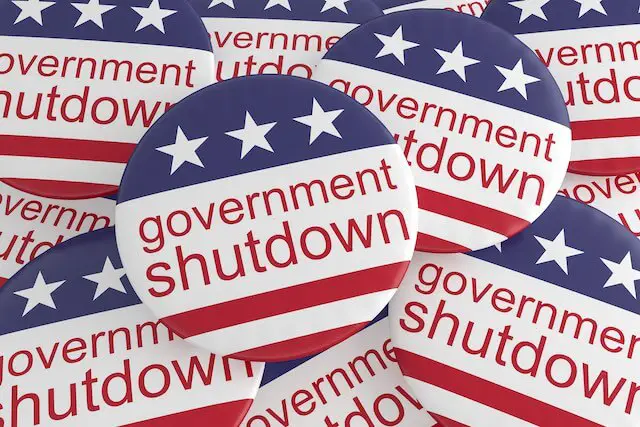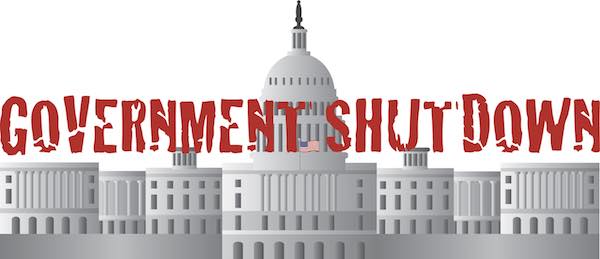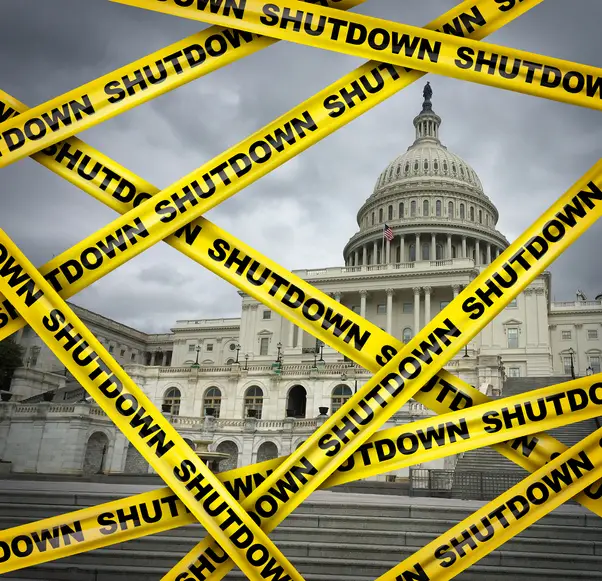A Dysfunctional Congress, a Partial Government Shutdown, and Furloughs
The federal government is facing another possible government shutdown. This is old news because, unfortunately, it is no longer unusual. The threat of a shutdown happens every year—sometimes several times in one budget cycle.
Several issues are holding up everything, and multiple Members of Congress are retiring—at least in part because of the intractable problems and never-ending bickering. The southern border of the U.S. is a significant problem, but the current administration does not appear concerned with millions of illegal immigrants flooding into the country. Republicans are livid over the lack of action. The disagreement is in a stalemate as border crossings continue in record-setting numbers.
Fixing the southern border issue and deciding how much to spend rearming Ukrainian soldiers are hot-button issues. The Hamas attack on Israel and the possibility of this war spreading throughout the world is a big concern.
To add to the mix, one significant third-party candidate is gaining in the polls, and the first presidential contests are coming up soon with national elections in November.
Several federal agencies will be directly impacted if Congress doesn’t pass spending bills by January 19th. This includes the Departments of Energy, Housing and Urban Development, and Veterans Affairs. Based on what has happened in previous shutdowns, these agencies will at least partially shut down. If legislation is not passed by February 2nd, other government agencies will at least partially shutdown.
In the past, and undoubtedly again when there is a shutdown, a few hundred thousand federal workers will be furloughed. Other federal employees, labeled as “essential,” would work without being paid until legislation is passed after the political pressure builds to force a resolution.
As summarized in the Wall Street Journal recently:
Rarely has so much been riding on a U.S. legislative body that has done so little. The deeply polarized Congress spent last year lurching from crisis to crisis, plagued by down-to-the-wire disputes over the country’s borrowing limit and government funding—and the ouster of the House speaker engineered by eight unhappy Republicans.
Why Does a Government Shutdown Occur?
A federal government “shutdown” did not exist before 1980. The lack of a shutdown was not because Congress always passed a budget before starting a new fiscal year.
But, when there was a time when money had not been appropriated, government employees still went to work and still got paid (usually a little late until funds were approved). The situation was resolved without all the political drama we have inserted into our political system since 1980.
Who invented the shutdown? Benjamin Civiletti. Civiletti was the attorney general for President Jimmy Carter.
He concluded the president has the constitutional “leeway to perform essential functions and make the government ‘workable’.” This is apparently the reason for essential and nonessential workers.
The system that was in place worked well for 110 years without all the political drama. A reasonable person could have concluded it was not the intent of Congress in the late 1800s to create the draconian system that now grinds government to a halt. Presumably, there was some political advantage to be gained with the new interpretation and conclusion the government was not functioning properly without his new interpretation of an old law.
Potential Impact of a Shutdown on 2024 Federal Pay Raise—and Public Envy of Highest Raise in 40 Years
Those of us who are part of the federal community often do not pay much attention to what others may think. Numerous articles, including on FedSmith, tout the 2024 federal employee pay raise as helping out with the loss of purchasing power due to rapid inflation.
We may not pay attention to what others may think of federal employees getting the highest pay raise in over 40 years when Jimmy Carter was president. For many, the 5.2% pay raise is not viewed favorably.
In Washington, however, the federal employee pay raise is a very positive event. However, members of Congress from outside the Beltway work for constituents who may envy the significant raise for the federal workforce.
Numerous articles published in the last few days read like this partial quote from an editorial in the Las Vegas Review-Journal:
Is it a coincidence that both Mr. Carter and Mr. Biden — unpopular leaders presiding over economies wrought by inflation and sluggish housing markets caused by high mortgage interest rates — sought to placate a key Democratic constituency during a presidential election year? Hardly.
For comparison, a survey conducted late last year by the Society of Human Resources Managers estimates that the average private-sector employee can expect a pay hike of 3.5 percent this year. Many will likely get nothing. Let’s remember that these are the workers who must generate the billions in tax revenue necessary to cover Mr. Biden’s benevolence.
The Heritage Foundation estimated last year that the average American household has lost the equivalent of $7,400 in annual income since Mr. Biden was sworn into office….
Yet Mr. Biden remains unapologetically committed to an economic agenda of lavish spending, borrowing and $1.7 trillion annual deficits. That he would now approve record raises for a favored special interest group is a microcosm of the bigger picture. It’s also just another indication that the president doesn’t have much concern for those who must pay the bills.
Can Congress Change the 2024 Federal Pay Raise?
In 2019, Congress changed the annual federal employee pay raise. It was a positive change for federal employees. The FedSmith article on this event noted, “Thanks to the spending bill that just became law, federal employees will have a pay raise in 2019, overriding the pay freeze that was previously in place.” The result was a 1.9% average pay raise for the federal workforce. It was passed in February and was retroactive to the start of 2019.
One of these events will likely occur:
- Another temporary funding bill will pass.
- Some federal agencies close on January 19th. A budget bill passes before the second deadline occurring in early February.
- Congress passes a budget, probably in one huge omnibus bill, with contents generally unknown until it is passed.
The wrangling in Congress should involve intense discussions about the federal deficit of $34 trillion. If that occurs, some spending cuts will likely occur. One possible way to save money would be reducing or eliminating the federal employee pay raise, the highest pay raise in 40 years.
It is also possible there could be a higher pay raise to mollify some Democrats in Congress who represent large numbers of federal employees and who proposed a raise of 8.7% earlier in 2023.
A higher pay raise is unlikely with the interest paid on the federal debt growing rapidly. But a raise of more than 5.2% is not impossible as the federal workforce is a large, politically active portion of the electorate. Members of Congress will likely make concessions on topics some find distasteful—but without the political ramifications of actually shutting down some of the federal government.
As federal employees learned in 2019, predicting what will occur during intense political situations is difficult. The political pressure to work out a deal minimally acceptable to all sides is intense. Neither party wants to be blamed for a partial government shutdown.
Congress passed a bill a short time ago giving the military a 5.2% raise. That bodes well for keeping the 5.2% raise authorized in the Biden executive order, but that executive order is not necessarily the final defining moment in the current environment.






